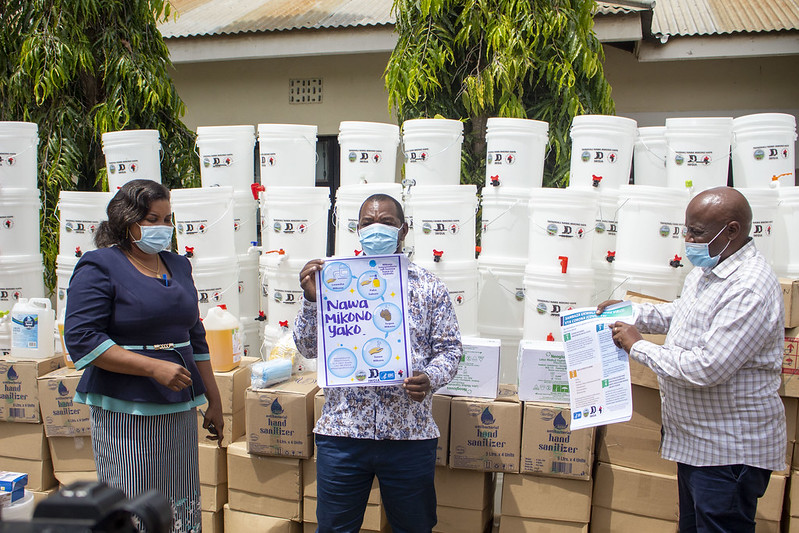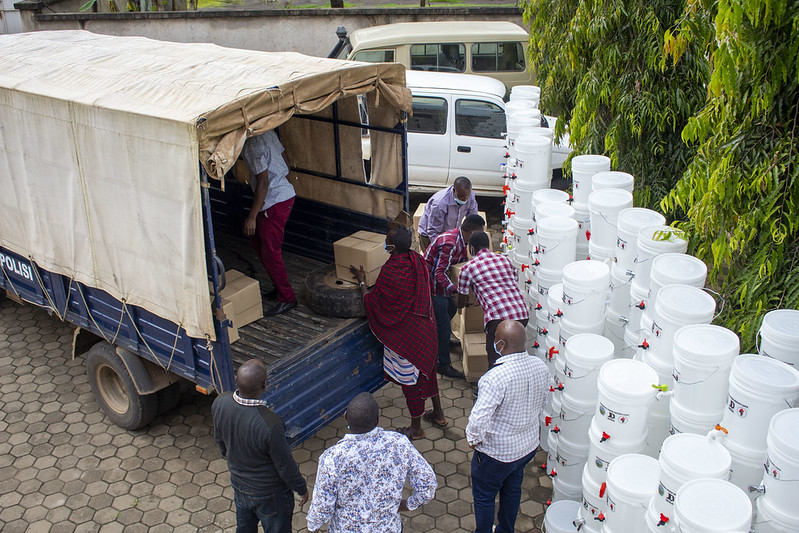
By IWGIA
14 january, 2021.- Since March 2020, IWGIA has worked to monitor the impacts of the pandemic on Indigenous Peoples around the globe and supported partners in their efforts to protect themselves from the health ramifications of the virus as well as the emergency law procedures enacted in many countries that have adversely affected them.
Triple-threat: Access to health care, food insecurity and land grabbing deepen the marginalization of Indigenous Peoples
Indigenous Peoples and their territories were already disproportionally affected by structural inequalities before the pandemic. Environmental degradation, conflicts over resources, expropriation of land and human rights violations continue to detrimentally impact their lives. However, the pandemic has now added another layer of threats that have compounded the challenges Indigenous Peoples face today.
From the very beginning of the outbreak Indigenous Peoples’ poor access to general health services has been a major concern, particularly because Indigenous communities are often in remote regions that have frequently had little to no access to health care.
Conflicts over territories and land grabbing on Indigenous Peoples’ ancestral lands and territories placed Indigenous Peoples’ in an already precarious situation prior to the pandemic, but the global crisis has led to several reports demonstrating how the intrusion of extractive industries on Indigenous lands has intensified this past year. Governments pass controversial and repressive legislation as a desperate response to the economic downturn that overrides the rights of Indigenous Peoples as they are often not consulted in national COVID-19 responses.
These laws and policies, as part of COVID-19 recovery plans, have led not only to the further destruction of Indigenous lands for large scale projects, but also to the criminalization of Indigenous women and men on the frontline defending their lands and territories against violations from state and non-state actors.
Additionally, the lack of culturally appropriate COVID-19 information in Indigenous languages and the absence of Indigenous Peoples in national recovery plans has negatively impacted the resilience of Indigenous communities.
In October 2020, UN Special Rapporteur on the rights of Indigenous Peoples José Francisco Calí Tzay noted that Indigenous Peoples are “rarely taken into account in contingency plans”, according to findings in his report showing that a majority of states have not included Indigenous Peoples in their COVID-19 recovery plans, stressing the importance of Indigenous Peoples’ right to free, prior and informed consent in decisions that affect them.
In December 2020, the UN put a focus on the growing marginalization of Indigenous Peoples during the pandemic and the crucial importance of consulting communities in the development of responses that concern them.
Communities are also facing issues with food security. Food shortages have been reported as one of the main challenges faced by Indigenous Peoples in light of the pandemic due to the mixed effects of self-isolation, general lockdowns, geographical remoteness and the disruption of trade mechanisms, along with the interruption of income-generating activities that have led to rising unemployment.
Preventative measures: Self-protection and awareness-raising
In all the regions where IWGIA works, the pandemic has disproportionally affected Indigenous Peoples, requiring different efforts to ensure prevention and protection.
Indigenous communities have mounted rapid responses to cope with the current situation through their own self-isolation protection mechanism, taking to advanced methods to seal off their villages, protecting themselves from the spread of COVID-19 from outsiders.

As active agents of change, Indigenous Peoples are relying on their own knowledge and practices to find solutions to the problem as some communities have done through their own representative institutions.
In Tanzania, IWGIA assisted PINGOs Forum in implementing a project aimed to equip Indigenous communities with relevant information on the pandemic, which was spread in a variety of ways, including through radio programmes, TV promotions and informative flyers.
Communities were also provided with protection materials such as hand sanitiser, protective gloves and equipment to set up handwashing stations.

Awareness-raising campaigns have proved successful, reaching remote hunter-gatherer communities where language-barrier and illiteracy levels coupled with the limited access to means of communication has made it difficult for the population to decipher the national campaigns on COVID-19.
Spreading awareness and sharing alerts through such media platforms has proven effective in other regions as well. The ability to reach a broad audience across regions, adapted to culture and language has been instrumental in sharing important information on the virus.
In Nepal, IWGIA has supported the Indigenous Media Foundation (IMF) in producing awareness-raising materials in 20 different Indigenous languages, which have been broadcast through TV, community radio stations and also on multiple social media platforms in order to reach communities with limited access to public information and health services.
In Brazil, our partner Acão Jovens Indígenas (AJI) has been broadcasting throughout the pandemic and lockdowns via their radio platform Rádio AJI. Through weekly radio transmissions, AJI has been reporting on the situation of Indigenous communities in Brazil, providing community-based information on COVID-19 and exposing troubling development.
After more than a thousand Yanomami were confirmed infected with COVID-19 in October, a commission under the Organization of American States (OAS) recommended that the Brazilian government should act to protect the Yanomami and Yekuana from the further spread of the virus. The OAS had previously been alarmed by illegal gold mining activity happening on Yanomami land and the potential spread of the virus through miners bringing the virus to Indigenous communities.
Spike in gender-based discrimination
IWGIA partner, the Asia Indigenous Peoples’ Pact (AIPP), has observed an increase in the discrimination of Indigenous women and girls in Asia in the extended lockdown period.
Indigenous women and girls – who are already subjected to triple discrimination based on ethnicity, gender and class – have, during the pandemic, experienced a lack of culturally appropriate access to information and health services, including on reproductive and sexual health, and an increase in human rights violations and racial discrimination.
AIPP has received worrying reports from Indigenous women organizations and networks that confirm a rise in violence against women and girls during the pandemic. The restricted mobility and escalating unemployment are just some of the contributing factors behind this increase.
In the Chittagong Hill Tracts in Bangladesh, for instance, abuses linked to military forces have been documented and two Indigenous women have been killed in these conflicts, while Indigenous women have been threatened and repressed by security forces in the Philippines and in India.
Agency of Indigenous women
The Indigenous Navigator report on the COVID-19 impact on Indigenous communities has shown that access to health and sanitary services has been unequal between women and men – an inequality that was already present before the pandemic which now has become more visible. However, what the data has also shown is the resilience and strong capacity of Indigenous women.
An Indigenous woman from a community in Latin America shared how she and other Indigenous women established a network wherein women from different communities have the ability to communicate with each other sharing information on how they are experiencing the emergency within their communities, how they themselves are coping with it and what challenges they are experiencing.
IWGIA partner and Indigenous women-led organisation, Organización Nacional de Mujeres Indígenas Andinas y Amazónicas del Perú (ONAMIAP), in Peru has called for a gender and culturally sensitive response to the pandemic that guarantees the participation of Indigenous Peoples on all decision-making levels and the inclusion of Indigenous women in recovery plans. ONAMIAP highlights the important role Indigenous women have consistently played as frontline workers in the fight against the pandemic.
It is exactly this type of call for action that has been echoed in recent years through the strong mobilization of Indigenous women organisations that have demanded a need for a greater gender perspective when addressing Indigenous Peoples issues. Indigenous women have held discussions on how to recover from COVID-19 and build back better – a recovery in which women are taking the lead in building the response and demand to be included in decision-making processes that involve them.
Indigenous women are knowledge holders, protectors of land, territories and resources and their crucial role as frontrunners in building and shaping the response to the global pandemic should be recognized.

Añadir nuevo comentario